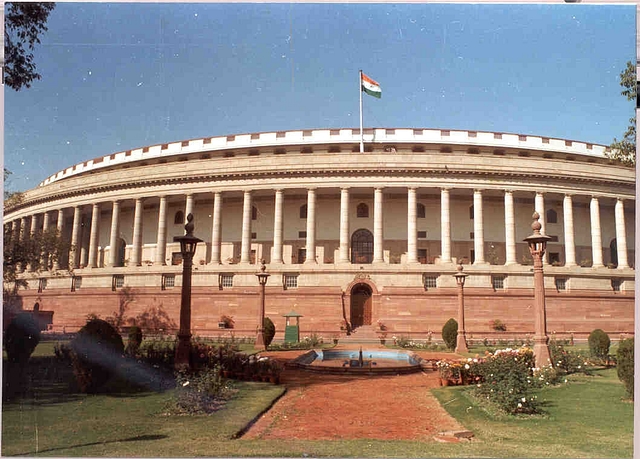
A New Capital For A New India
Shifting India’s capital from New Delhi is an idea whose time has come. Modi government should commence the process by building a national consensus. It will inaugurate a new forward-looking India.
The Lok Sabha Speaker’s urging for a new building for Parliament set off a train of thought in this writer which has been nicely concluded by Lord Megnad Desai in his piece for the Indian Express. He has suggested a new capital city more centrally located in the country than Delhi and has identified Dandakarnanya as a likely site. This writer remains open about another location for the suggested capital provided it meets some conditions.
The first is it should be located outside North India. Delhi being in North India has biased the country’s politics in favour of North India, especially the states of Uttar Pradesh and Bihar, and to a smaller extent, Madhya Pradesh and Rajasthan. Politics is making a rough and irregular transformation to concerns about the political economy, and this transformation is likely to be smoother with a capital located outside North India, a region less engaged with growth and development issues than some other parts of the country.
The second requirement for a new capital would be its location where at least three or more states meet. Dandakarnanya perfectly meets the requirement (it has five states converging) but it could be another place selected by political consensus. Finally, the new capital’s administration must be unencumbered by the sort of rivalrous politics of a local city government which is destroying Delhi. The new capital cannot have an elected government but be administered by the equivalent of NDMC, entirely controlled by the Central government.
What should the new capital city contain? It should have to house a new Parliament complex, Supreme Court, and the entire Central government. The President and the Prime Minister’s residences should be the only homes permitted in the capital with all the land permanently and inalienably titled to the Central government. Ministers and officials of the Central government can stay in locations outside the capital and vote from their localities for the national Parliament.
The idea of a new capital will not be readily accepted. Cost is a major factor. This could be justified with Prime Minister Narendra Modi’s vision for one hundred new smart cities. Delhi was centrally located for the British Empire of India with its far-flung interests in Afghanistan and Central Asia, Tibet, Burma and beyond, the Middle East, and the Indian Ocean. With the more curtailed territories of independent India, the country’s centre of gravity has shifted south. This shift is by no means recent, having a history of nearly seven decades. Nevertheless, it needs redress. Why not now?
Public opinion in North India would understand and appreciate the shift if properly explained. Politicians of the North would be more reluctant imagining a reduction in political power. They are not wrong. But they would become amenable when educated to the profound changes in India’s political-economic landscape which makes the shift both desirable and inescapable.
Under Prime Minister Modi, India is moving towards small government. State governments are headed in the same direction but slowly. In times to come, governments will become less involved in people’s lives. Middlemen and brokers will feel greater constraints. Already, they feel the heat in Delhi with the Modi government’s zero-tolerance policy towards corruption. Lutyens’ Delhi and its power elite with a vampire squid hold on India seem unprecedentedly threatened. In other words, the capital city will come to concentrate less power than presently. Relocating the capital to a new place, therefore, makes even greater sense.
There is also the sentiment of the rest of India to consider. Central India is backward. Proximity to the new capital would spur growth in the region. The political balance would be finely met. Delhi will not lose its status as a metropolis. With the Central government shifted, it can become a full state responsible for its own destiny. The present arrangement neither satisfies Delhi nor suits the special requirements of the Central government.
But the decision for a new capital should not unilaterally be taken by the ruling party because it would impede it. A political consensus is essential, even if it takes a year or more. It is an idea whose time has come. If the Modi government thinks it worthwhile, it should commence the process of building national consensus on a new capital. It will inaugurate a new forward-looking India.
This piece was first published on NewsInsight.
Also, read Harsh Gupta’s piece from last year where he makes a compelling case for relocating India’s capital to the Patna-Gaya-Nalanda triangle.